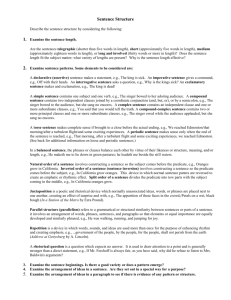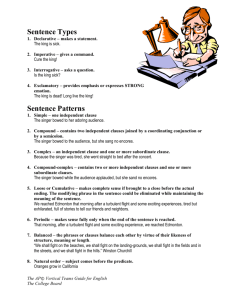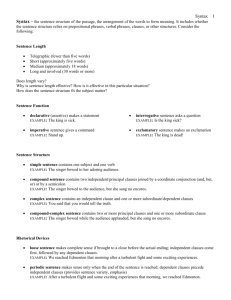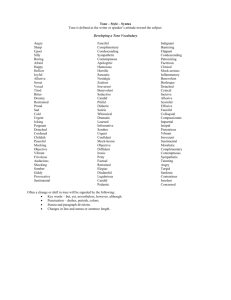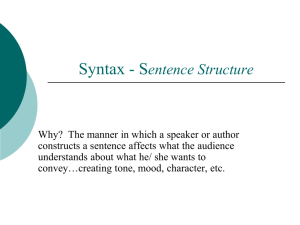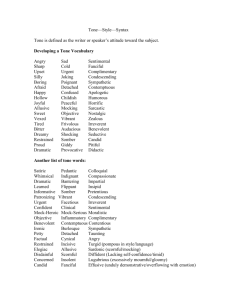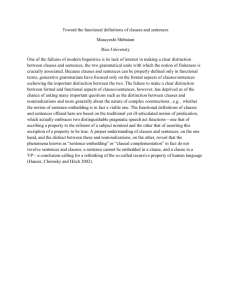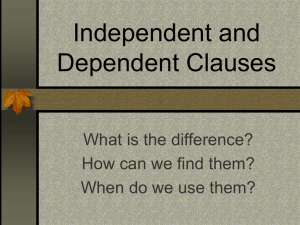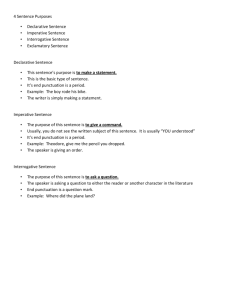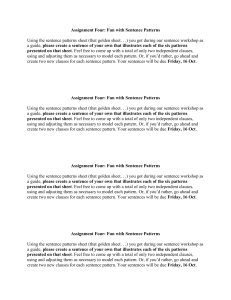Tone Vocabulary Routine
advertisement
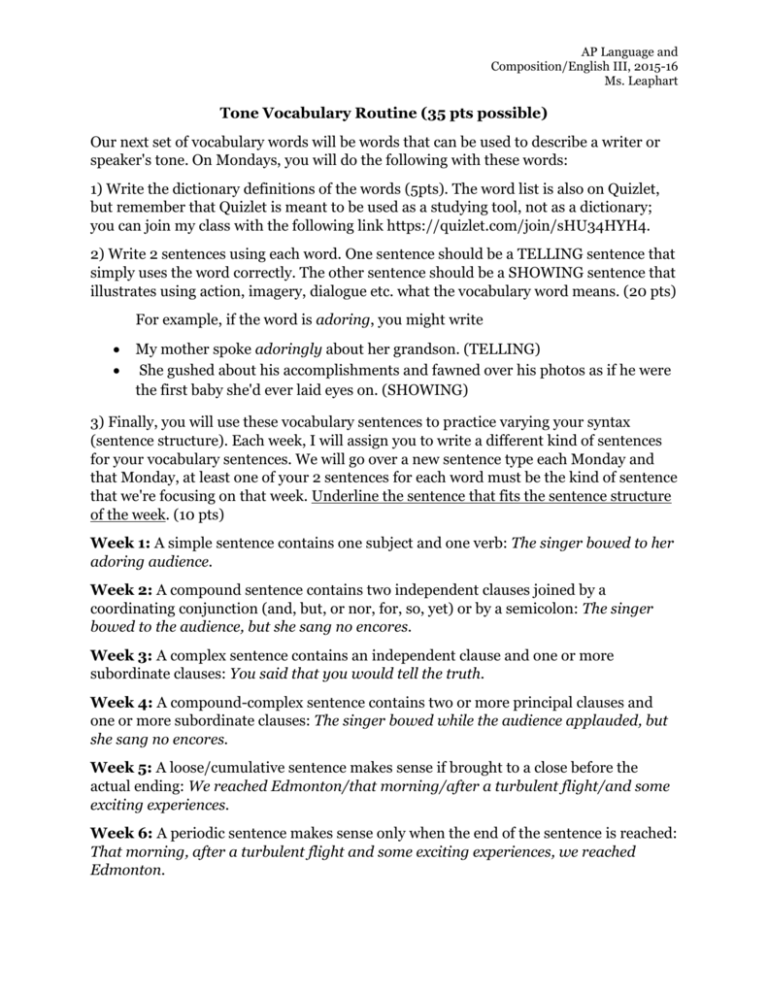
AP Language and Composition/English III, 2015-16 Ms. Leaphart Tone Vocabulary Routine (35 pts possible) Our next set of vocabulary words will be words that can be used to describe a writer or speaker's tone. On Mondays, you will do the following with these words: 1) Write the dictionary definitions of the words (5pts). The word list is also on Quizlet, but remember that Quizlet is meant to be used as a studying tool, not as a dictionary; you can join my class with the following link https://quizlet.com/join/sHU34HYH4. 2) Write 2 sentences using each word. One sentence should be a TELLING sentence that simply uses the word correctly. The other sentence should be a SHOWING sentence that illustrates using action, imagery, dialogue etc. what the vocabulary word means. (20 pts) For example, if the word is adoring, you might write My mother spoke adoringly about her grandson. (TELLING) She gushed about his accomplishments and fawned over his photos as if he were the first baby she'd ever laid eyes on. (SHOWING) 3) Finally, you will use these vocabulary sentences to practice varying your syntax (sentence structure). Each week, I will assign you to write a different kind of sentences for your vocabulary sentences. We will go over a new sentence type each Monday and that Monday, at least one of your 2 sentences for each word must be the kind of sentence that we're focusing on that week. Underline the sentence that fits the sentence structure of the week. (10 pts) Week 1: A simple sentence contains one subject and one verb: The singer bowed to her adoring audience. Week 2: A compound sentence contains two independent clauses joined by a coordinating conjunction (and, but, or nor, for, so, yet) or by a semicolon: The singer bowed to the audience, but she sang no encores. Week 3: A complex sentence contains an independent clause and one or more subordinate clauses: You said that you would tell the truth. Week 4: A compound-complex sentence contains two or more principal clauses and one or more subordinate clauses: The singer bowed while the audience applauded, but she sang no encores. Week 5: A loose/cumulative sentence makes sense if brought to a close before the actual ending: We reached Edmonton/that morning/after a turbulent flight/and some exciting experiences. Week 6: A periodic sentence makes sense only when the end of the sentence is reached: That morning, after a turbulent flight and some exciting experiences, we reached Edmonton. AP Language and Composition/English III, 2015-16 Ms. Leaphart Week 7: In a balanced sentence, the phrases and clauses balance each other by virtue of their likeness of structure, meaning or length: He maketh me to lie down in green pastures; he leadeth me beside the still waters. Week 8: In a natural sentence (in English) the order is subject + verb: Oranges grow in California. Week 9: In an inverted sentence, the word order is somehow reversed to create an emphatic or rhythmic effect: In California, oranges grow. Week 10: In an active voice sentence, the subject of the sentence performs the action of the sentence: Carly smacked the table with the palm of her hand. Week 11: In a passive voice sentence, the subject of the sentence receives the action of the sentence: Carly was smacked by the closing door.
